Outreach
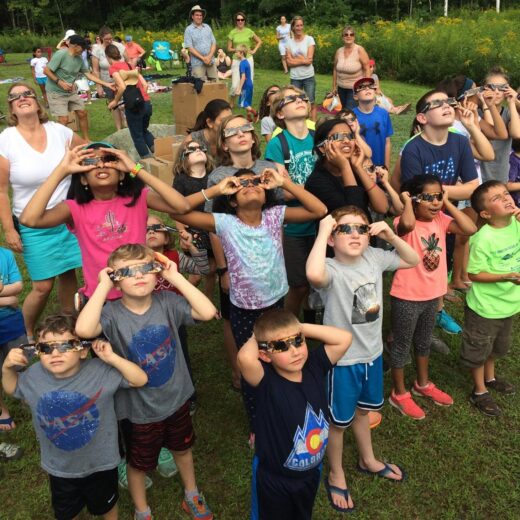
Making connections with classrooms and community, for a better world.
We’re keen to share our discoveries and make connections across the community, promoting public understanding and appreciation of scientific research, fostering an inclusive vision for the future of science, and inspiring new generations of researchers and innovators.
LINK-12 — Let’s Invest in K-12
LINK-12 fosters connections between EAPS scientists and schools and educational programs in the Boston area. We promote educational interactions that are meaningful, relevant, and respectful, with the intent of creating long-term collaborations. We’ll share our knowledge, as well as stories of our inspiration, our successes, and our struggles. Our program is designed to fuel students’ natural curiosity, igniting an interest in scientific discovery and STEM careers.
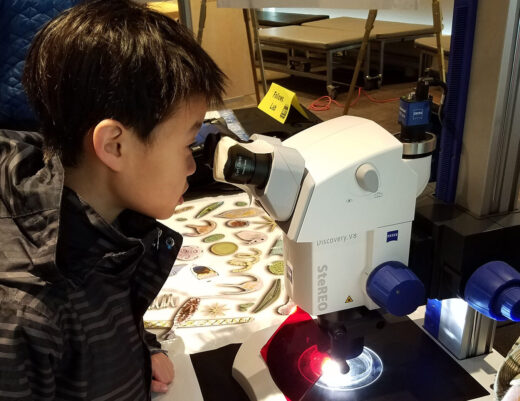
Infinite Solar System
Scaled to the length of MIT’s Infinite Corridor, this interactive exhibit conceived by EAPS Professor Richard Binzel is a self-guided tour that brings the solar system down to Earth. Starting on the third floor of the Building 7 atrium, with the Sun at the center, explorers can walk their way across space toward the outer limits of our solar system, encountering 3D models printed from spacecraft data of each solar system body along the way.
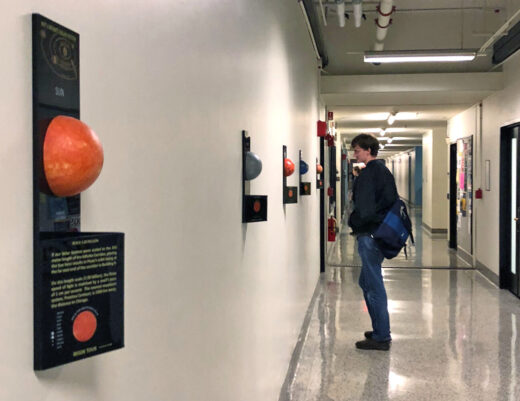
Wallace Observatory Tours
The Observatory and its staff have a long, rich history of community engagement, both on site and beyond in the classroom. In addition to community open houses and tours, the Wallace staff and students support local STEM teachers through school visits with in-person demos and solar observing, as well as remote presentations of astronomy-related material.
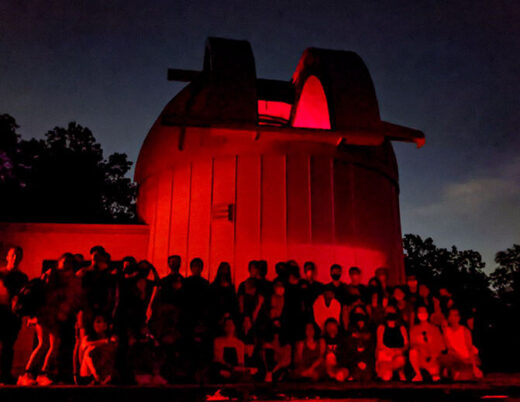
MSRP – MIT Summer Research Program
MIT’s Summer Research Program promotes the value of graduate education and improves the research enterprise through increased diversity. Talented undergraduates who who might benefit from spending a summer on MIT’s campus are invited to conduct research under the guidance of faculty, helping prepare and motivate students to pursue advanced degrees and STEM careers.
For information on MSRP opportunities in EAPS: Contact Professor Arlene Fiore
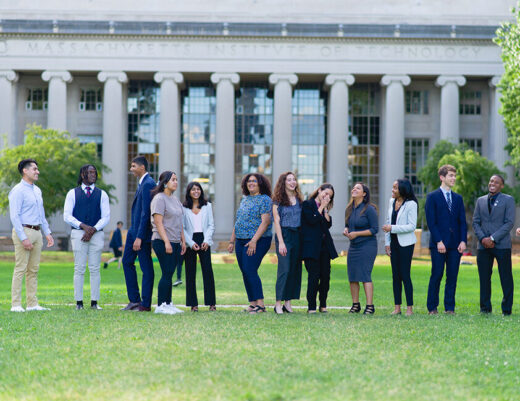
iGlobe + EsGlobe
Developed at MIT for education and outreach, EsGlobe provides an interactive web-based display for rendering and interacting with environmental data on a virtual sphere, while the iGlobe/MIT interface is able to project movies using near real-time data onto a 3D spherical display to depict Earth, oceanic, and atmospheric processes over time—a popular feature at EAPS open houses and outreach events.
For more information about iGlobe: Contact Professor Glenn Flierl
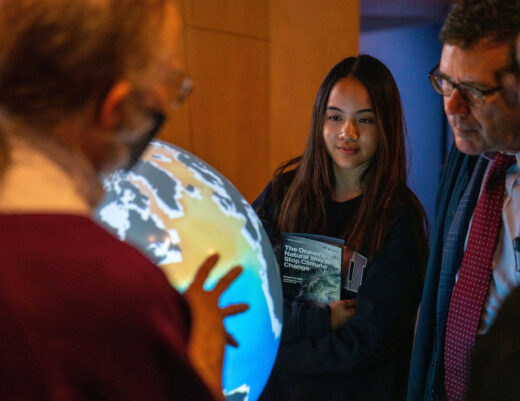
Weather in a Tank
The ‘Weather in a Tank’ project was funded by NSF to develop curricular materials for students to explore how rotating fluid experiments can be used to better understand atmospheric circulation, climate and oceanography. The group maintains a website aimed at educators to help them build their own apparatus and lessons, and frequently hosts hands-on demonstrations at open houses and public outreach events for K-16 audiences.
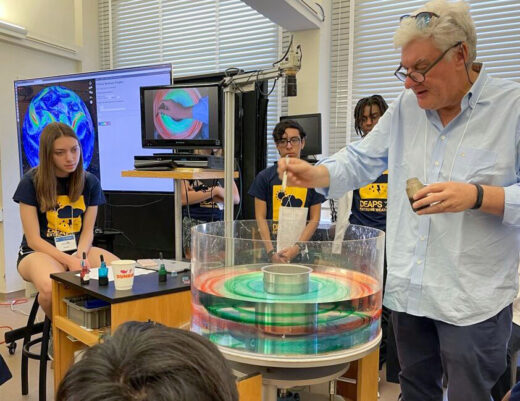
Headline Lectures + Outreach Events
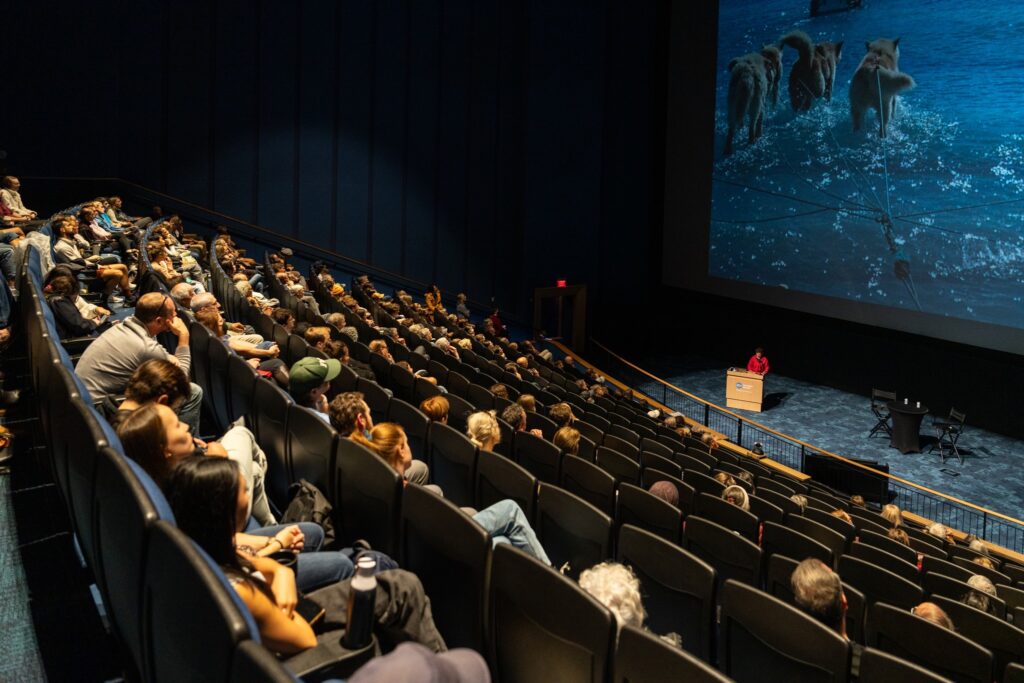
Each year, EAPS welcomes the public to join us for headline lectures on exciting current research, featuring distinguished speakers from MIT and institutions around the world.
We also participate in the Cambridge Science Festival and partner with the MIT Museum to host interactive exhibits presented by our students and researchers, where curious guests can ask questions and experience our science up-close.
John H. Carlson Lecture
An annual outreach event to communicate exciting new results in climate science to the public and to engage with area high school students, with the aim to inspire young people to consider careers in the geosciences, and in STEM in general. Free of charge and open to the general public, the lecture is made possible by a generous gift from MIT alumnus John H. Carlson to the Lorenz Center in the Department of Earth, Atmospheric and Planetary Sciences at MIT.
Henry W. Kendall Memorial Lecture
Honors the memory of Professor Henry W. Kendall (1926-1999) who was the J.A. Stratton Professor of Physics at MIT. Professor Kendall received the Nobel Prize in 1990 for research that provided the first experimental evidence for quarks. He had a deep commitment to understanding and finding solutions to the multiple environmental problems facing the world today and in the future. Co-sponsored by the MIT Center for Sustainability Science and Strategy (CS3), the permanently endowed Kendall Lecture features leading researchers in environmental and climate science.
Houghton Lecture Series
Supported through the Houghton Fund in the EAPS Program in Atmospheres, Oceans and Climate (PAOC), Houghton Lecturers are distinguished visitors from outside MIT who are invited to spend a period of time—ranging from a week to several months—as scientists-in-residence, lecturing in ocean, atmospheric, or climate science. During their stay it is customary for each lecturer to offer a short-course in a topic of wide interest to the department.
William F. Brace Lecture
Honors the legacy of former EAPS Department Head and “legend in rock physics” Bill Brace who passed away in 2012. Envisioned as an all-department, public outreach event, EAPS faculty or distinguished visitors from outside MIT are invited to speak on a subject of contemporary interest in Earth, atmospheric, or planetary science.
